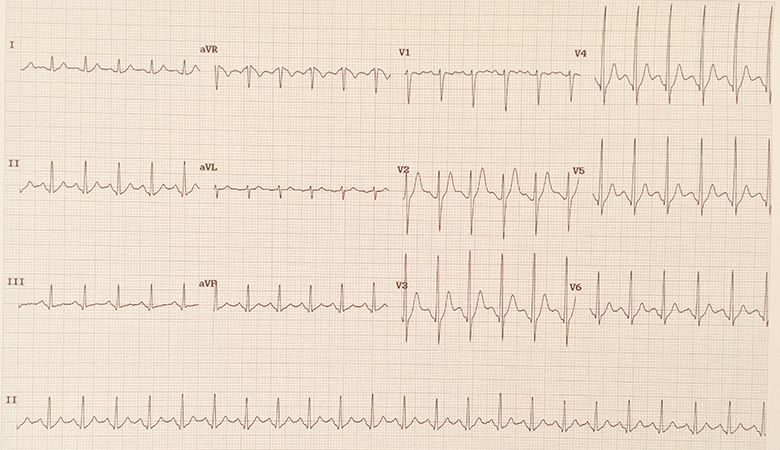Exercise tolerance test (ETT)
A 12-lead ECG is a very useful screening test but may not identify abnormalities which occur on exertion. Patients with suspected coronary artery disease or exertional symptoms may require ECG assessment during exercise, commonly using a treadmill, to identify abnormalities that suggest poor blood supply to the heart or arrhythmia.

12-lead ECG during exercise testing
This investigation is a controlled walking test which carries very small risk. The treadmill speed starts slowly and progresses in 3 minute stages to a brisk walk on an incline. During the test, you are monitored closely with continuous 12-lead ECG, interval blood pressure readings and regular questions regarding any development of symptoms. The test is completed when either a predicted target heart rate is achieved, the patient cannot go on any longer, or significant ECG abnormalities are identified. At this point ECG and blood pressure monitoring continues in the recovery phase before completion for the test.
Exercise tolerance tests results are analysed closely and, if abnormal, can sometimes lead to further detailed or invasive investigations such as a cardiac CT coronary angiogram (CTCA), dobutamine stress echocardiogram (DSE), nuclear myocardial perfusion scan (MPS) or invasive coronary angiography.


